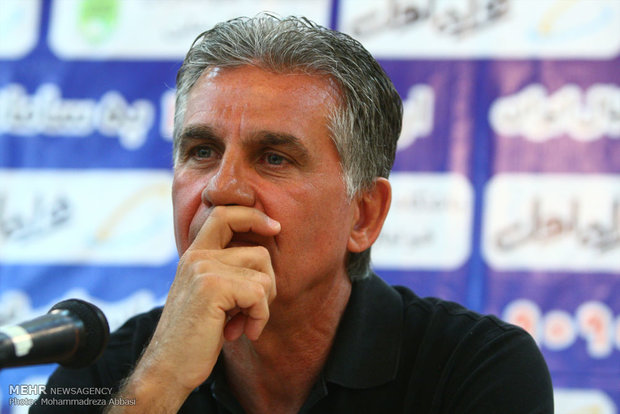Iran coach says Guam visa hassles nothing to do with soccer

NZHerald – KUALA LUMPUR, Iran coach Carlos Queiroz says the frustrations faced by the tiny Pacific island of Guam in obtaining visas to travel to Tehran for a World Cup qualifier next month give just a glimpse of the problems long faced by his team in negotiating international soccer.
Iran, Asia’s top-ranked soccer team, has been dealing with the effects of American-led sanctions for years.
Those sanctions may eventually be eased under a United National Resolution passed in July, but Queiroz says there is no end in sight to the complications involved with being in charge of Iran’s soccer team.
As well as the absence of some western embassies in Tehran, the Iranian Football Federation has struggled to gain access to international funds, hold overseas training camps and play warm up matches.
Iran also has visa problems ahead of its Nov. 17 World Cup qualifier in Guam.
Guam is an unincorporated U.S. territory and entry requirements are the same as for any other U.S. destination. However, in a bid to boost tourism, the U.S. federal government has implemented a Guam-only visa-waiver program for most Asian countries.
“The situation is very complex because Guam play under the umbrella of the United States, but this is football,” Queiroz told The Associated Press. “It is very difficult for us to find a way to get visas for our players because Guam demands the list 60 days in advance.
Not only that, all the players must go the American Embassy but there is none in Iran,” he added. “So the question is: how can I find a way to release players from their club duties to spend three or four days in a foreign country to get the visas? We are in trouble.”
Queiroz, who took Portugal to the 2010 World Cup and Iran to Brazil 2014, wants the Asian Football Confederation to step in and find a resolution to the problem.
“The AFC should come across and, once they accept Guam to play in this competition, they must be clear with the rules,” the Portuguese coach said. “Guam must find a way not to force the Iranian players to spend three or four days to get a visa in a period when the clubs don’t release the players so this is a very difficult situation for us.”
If no other solution presents itself, Queiroz, a former coach of Real Madrid, is ready to use what should be training time before an October qualifier against Oman to secure the visas.
“This is what we have at the moment. Instead of preparing for the game with Oman we will instead have to go to Turkey or the (United Arab Emirates) instead and go to get the visas to play against Guam which is a bizarre situation.”
Guam has similarly complained of its problems obtaining the proper documentation to enter Iran for its Sep. 3 qualifier despite, according to the Guam Football Association, starting the visa application process in June.
“Any visa or logistical matters are being handled by my executive and president Richard Lai and they are capable of dealing with it,” Guam coach Gary White told Associated Press. “As far as I’m concerned, we are playing in Iran on September 3 until told otherwise. My focus is on the team and the preparation of the team. We are excited and motivated and are looking forward to what should be a great test.”
Guam, under its English coach, has won both games so far in the second round of qualification and sits on top of its group.
The island of just 170,000 people has climbed to 146 in FIFA’s world rankings and is one of Asia’s most improved teams, but playing Iran is as testing off the field as on.
These are problems Iran should be accustomed to. Years of sanctions affected the ability of the IFF to access funds from world governing body FIFA and the AFC, and therefore pay for facilities or organize training camps overseas.
The cancellation of the relatively few friendly matches arranged for the team have been a common occurrence over the years.
After the 2014 World Cup, during which Iran gave a good showing despite earning a single point from three games, Queiroz explained that he was ready to leave but was persuaded to stay by a federation that believes the situation will change.
“It was my hope that things could change and that we could have the right conditions to prepare the team for the World Cup in Russia,” he said. “The federation board still believes that with the end of the sanctions there is now a chance to put something in place to change the situation. Let’s see. I have this perception that things will not happen in the short term.”




